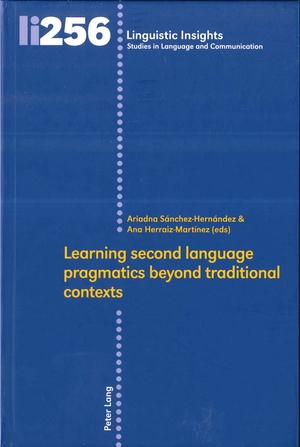
Extramural contact with foreign-language media is highly beneficial to language learners. Studies exploring film and television show a positive impact in a range of language learning areas (d’Ydewalle/Van de Poel, 1999; Koolstra/Beentjes, 1999; Weyers, 1999; Kuppens, 2010; Wang, 2012; Nightingale, 2016). Pragmatics research has already considered the role of film and television (Alcón, 2005; Martínez-Flor, 2007; Fernández-Guerra, 2008; Beltrán-Palanques, 2011; Martínez-Flor/Beltrán-Palanques, 2014) however this work focuses on instructed settings. Studies which explore the potential of television as an extramural factor in the development of pragmatic competence remain purely theoretical (Cenoz/Gorter, 2008; Nightingale, 2014). In short, although film and television have previously been explored as a variable in foreign-language pragmatics, there seems to be very little empirical work that considers the impact of extramural contact with this type of media. With the above in mind, the current mixed-methods study focuses on 23 English Studies students at the University Jaume I and how extramural contact with English-language TV series impacts on their pragmatic competence and awareness. Results from the quantitative data indicate that merely watching TV series is not a predictor of pragmatic competence. However, the amount of time spent on this activity (a quantity change in the input) correlates with higher mean scores in pragmatic competence for the speech acts of apologies, complaints, refusals, and requests, while the use of subtitles (a quality change in the input) correlates with higher mean scores for requests, suggestions, and complaints. Results from the qualitative data reveal an enhanced pragmatic awareness stemming from extramural media contact, although the participants focused more on the sociopragmatic aspect than the pragmalinguistic aspect. Finally, the participants were acutely aware of the importance of teaching English in EFL classes in a way that adheres to the sociocultural conventions of English-speaking countries.